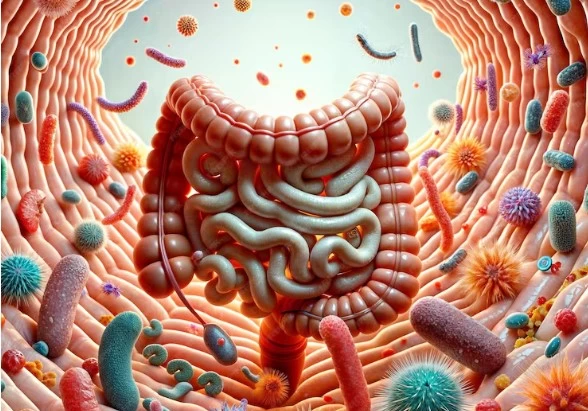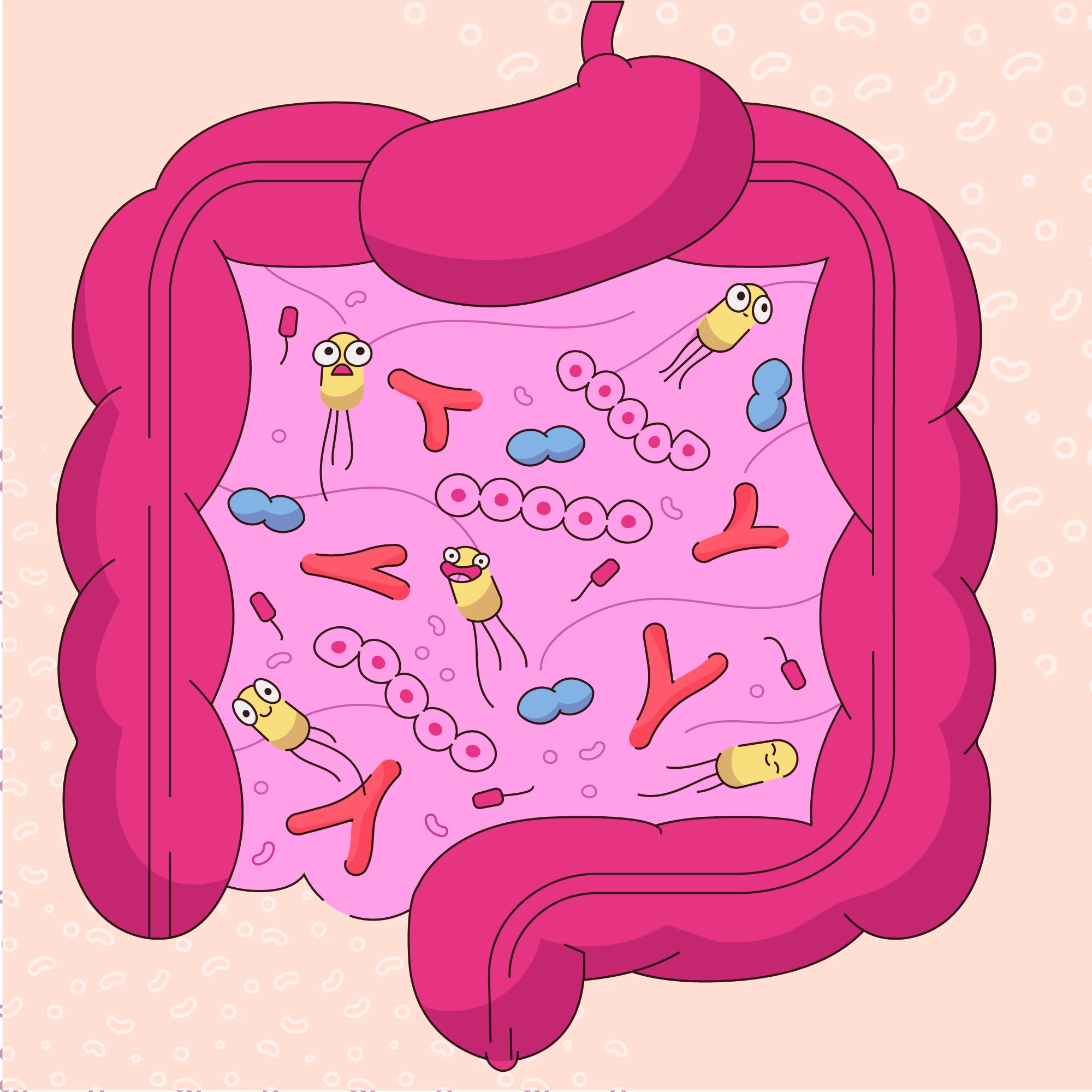
Did You Know What SIBO Is?
- Did You Know What SIBO Is?
- Managing SIBO with Nutrition
- Personalized Nutrition Plan
SIBO, or Small Intestinal Bacterial Overgrowth, is a common condition in the digestive system that, if left untreated, can significantly reduce the quality of life. As a dietitian, I frequently emphasize that nutrition plays a crucial role in treating SIBO. SIBO occurs when bacteria that are either not supposed to be present or are normally present in small numbers in the small intestine, grow excessively in this region. This can lead to symptoms like bloating, gas, abdominal pain, diarrhea, or constipation.
While antibiotics and probiotics used in the treatment process are important to restore bacterial balance, achieving complete recovery without a proper nutritional plan can be difficult. Nutrition plays a critical role in controlling bacterial overgrowth, improving gut health, and alleviating symptoms.
Managing SIBO with Nutrition
The goal in treating SIBO is to reduce the bacterial load in the small intestine, support digestion, and rebalance the gut flora. During this process, some food groups may need to be restricted. Below are some nutritional strategies that have proven effective for SIBO patients, which I frequently recommend based on my personal experiences:
1. Low FODMAP Diet
One of the most effective nutritional plans for managing SIBO is the low FODMAP diet. FODMAP stands for fermentable oligosaccharides, disaccharides, monosaccharides, and polyols. These carbohydrates ferment easily in the gut and can cause bacteria to overgrow. In the low FODMAP diet, these types of foods are restricted, reducing the excessive bacterial growth in the small intestine.
- High FODMAP foods to avoid: Garlic, onions, legumes, apples, pears, wheat, milk, yogurt, broccoli, cauliflower, etc.
- Low FODMAP foods that can be consumed: Carrots, zucchini, cucumber, potatoes, blueberries, strawberries, eggs, chicken, fish, etc.
The low FODMAP diet is usually applied as a temporary strategy to alleviate SIBO symptoms. During this process, the goal is to gradually expand the individual’s diet and determine which foods can be tolerated.
2. Avoiding Fermented Foods
Although fermented foods are generally beneficial for gut health, they can have adverse effects for individuals with SIBO. Foods like kefir, sauerkraut, and kombucha are rich in probiotics. However, since SIBO involves bacterial overgrowth, these foods can worsen symptoms. Therefore, I recommend avoiding fermented foods during SIBO treatment.
3. Controlling Fiber Intake
While fiber supports digestion in healthy individuals, excessive fiber intake in SIBO patients can make digestion more difficult. Particularly, soluble fibers can create an environment conducive to bacterial growth. Therefore, the type and amount of fiber consumed are very important. I personally recommend opting for foods that are lower in soluble fiber and easier to digest.
- Low-fiber vegetables: Zucchini, cucumber, spinach, and similar vegetables are easier to tolerate.

4. Paying Attention to Protein Consumption
Proteins take longer to digest than carbohydrates, and some protein sources can cause gas formation in the gut. Therefore, I recommend that SIBO patients avoid excessive consumption of red meat. Instead, consuming lighter protein sources like chicken and fish may be more appropriate.
5. Avoiding Sugar and Refined Carbohydrates
Sugar and refined carbohydrates provide an ideal food source for bacteria in the small intestine. Therefore, sugary and refined foods (such as white bread, pasta, sweets) can contribute to further bacterial overgrowth. Completely restricting such foods in the diet can accelerate the healing process.
6. Meal Schedule and Intervals
One of the most common problems in SIBO is slow digestion. Therefore, meal scheduling is very important. I usually suggest the following to my patients:
- Frequent, smaller meals: Large meals can make digestion more difficult. Therefore, eating smaller portions more frequently can ease digestion.
- Leaving at least 3-4 hours between meals: Ensuring sufficient intervals between meals is important for allowing the intestines to carry out their cleaning functions. During this time, the intestines can perform their natural cleansing process.
7. SIBO-Friendly Supplements
In some cases, supplements can be beneficial in managing SIBO. However, they should always be used under the guidance of a healthcare professional. The supplements I generally recommend include:
- Probiotics: Similar to fermented foods, caution should be exercised when using probiotics during SIBO. Particularly, Lactobacillus strains may worsen SIBO symptoms. Therefore, selecting specific probiotic formulations is crucial.
- Digestive enzymes: Since digestion can be more difficult in SIBO patients, digestive enzymes taken with meals can support the digestive process.
- Berberine: Known as a natural antibacterial agent, berberine can be used to suppress bacterial overgrowth during SIBO treatment.
Personalized Nutrition Plan
Since SIBO can manifest with different symptoms in each individual, it is essential to create a personalized nutrition plan rather than following a general diet list. The diet should be adjusted based on the underlying causes of SIBO and the individual’s symptoms. I advise each patient to carefully monitor how their digestive system reacts and adjust their diet accordingly.
Additionally, I would like to remind everyone that SIBO cannot be treated with diet alone. It must be addressed with a comprehensive approach. When combined with appropriate medical treatment, nutritional adjustments yield the most effective results.

Spc. Dietitian Elisa Atasoy
Dietitian and Nutrition Specialist





